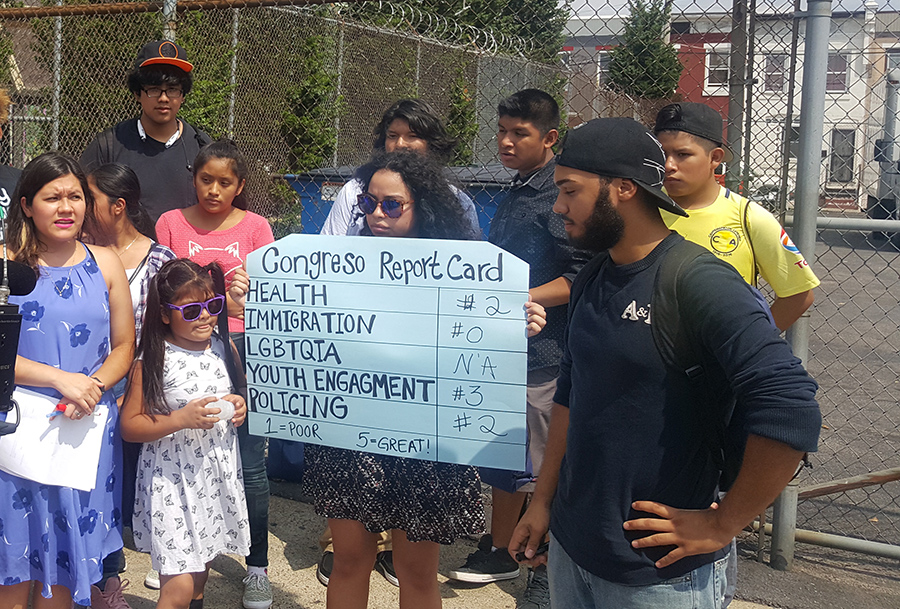Young leaders last week met with the CEO of a Latinx nonprofit organization to discuss the agency’s ability to serve the community.
Fifteen members of GALAEI, a queer Latinx organization, and Juntos, a community-led Latinx immigrant organization, met with Congreso de Latinos Unidos CEO Carolina DiGiorgio Aug. 16. DiGiorgio has faced criticism from several Latinx organizations after she appeared to be applauding in the front row at President Donald Trump’s 100-day rally April 29 in Harrisburg, Pa.
DiGiorgio was not immediately available for comment on this story but previously told Philly.com that she attended to support her husband, Pennsylvania Republican Party Chairman Valentino DiGiorgio.
DiGiorgio told the youth 24 hours prior to the meeting that she would not discuss “politics” with youth, according to a statement from GALAEI and Juntos. The consensus was that the youth felt “disappointed” after the meeting and gave the CEO a “report card” on her stance of issues, which they displayed outside the agency’s headquarters after the meeting.
The youth gave DiGiorgio the following scores:
• Health: 2
• Immigration: 0
• LGBTQIA Issues: N/A
• Policing: 2
• Youth Engagement: 3
According to reports, the group did not get a chance to discuss LGBT issues.
Felix Morales, 16, said in a statement that he did not agree with DiGiorgio limiting conversation topics.
“If she is a leader in our community, she should be open to answering any questions we had,” Morales said. “There’s many issues that affect our lives, including Trump and his racist policies, that she seems to support. This isn’t politics, this is about our lives, our families’ lives. I hope in the future we’re able to have a real conversation with her.”
Odalys Peralta, 15, added that the group was not satisfied with how DiGiorgio conducted the meeting.
“We were expecting to go in and have an actual conversation with her but we were met with an almost-hour-long presentation by a huge team,” Peralta said. “We got a lot of information on the resources of Congreso, yes, but I felt like we were being talked ‘at’ and we weren’t able [to] actually have a conversation with her. I felt like she didn’t respect our intelligence.”

